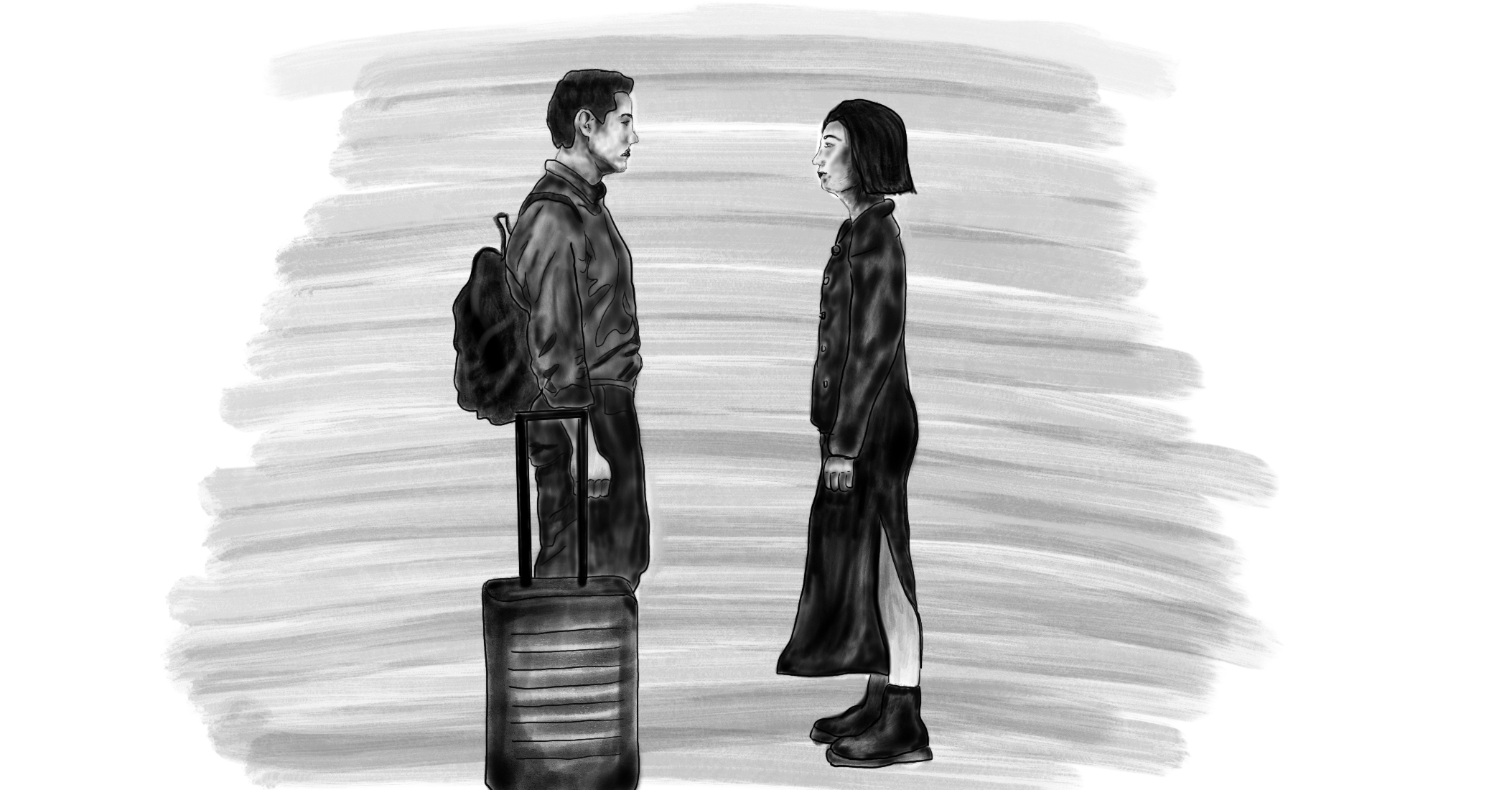Past Lives: What life could’ve been
February 9, 2024
 Kaya Patel
Kaya PatelIn the weeks after seeing “Past Lives,” I waited for some kind of overwhelming emotion to strike down on me to feel shattered by some inescapable sadness. This exercise of predicting my own emotions was foolish. Emotion recedes, it hammers down—it’s constantly in motion, a liminal substance. It’s neither within our insides nor out in that little gap between you and me. It’s an invisible force that pulls and lulls us.
“Past Lives” follows, as one character quotes, “childhood sweethearts who reconnect 20 years later and realize they were meant for each other.” Or so it would seem at first. Nora, who emigrated from Korea as a child, finds herself facing an onslaught of what-ifs as her old friend Hae Sung visits her and her husband Arthur in New York City. To Nora, Hae Sung possesses a Koreanness that she does not have anymore. His presence is a reminder of the life she could have had, not only of a potential romance, but of a completely reimagined existence in South Korea.
In listening to criticism of the film, I heard a reviewer note that the nature of being an immigrant (or the child of one) is that the path not taken remains a constant presence. It’s not just an invisible presence the way I described emotion, but an integral part of identity. It’s not just a metaphysical burden—you can touch it, inside and out.
I have my abuelita’s birthday on my Google Calendar app. I have her phone number. I called her one time on my own, without my mother as an intermediary to translate. My Spanish is more than passable, but hardly fluent. I started the call with “feliz cumpleaños,” and I wasn’t quite sure where to take the conversation next. There was a distinct lull, a confusion on both ends. It was … awkward. We didn’t know where to go once on our own. And it wasn’t how I wanted it to go. I never picked up the phone myself after that.
My family went down to Oaxaca this winter, and it was my first time visiting in five years. And things have changed. Mi abuelita ya no está con nosotros. Certain family members have stopped speaking to each other. There are new baby cousins to meet and stressfully cradle. In this most recent trip, as in the ones before, it has always felt like just that: a trip. That I am just a visitor in this place that could have just as easily been my everything.
In “Past Lives,” director Celine Song is right on the money: Romance sums up all these identity concerns, of settling down and having roots. It definitely does for me. My sister and I once asked my mom what she thought our dating prospects would be if we, hypothetically, stayed and lived in Mexico. She laughed it off, saying, “Well, you’re Americans, you have money, everyone will want to get with you.” We pushed her for the answers we were looking for. She told me I would be so-so: Compared to los jovenes de allá, I’m more responsible, softer, smarter. But, I don’t like to have fun como un joven del pueblo, no bailo, no me gusta emborracharme. A puzzle piece that works from one end but not the other. I could not settle down y tener una vida en México. The question I had but didn’t ask was: Do I not fit in because of my personality, who I am, or because I’m an American? Does my Americanness consume my Mexicanness?
There’s this strange sense of feeling both left behind and like you’ve left others. I held some cousins closer to my chest, knowing that they would miss out on many opportunities that could make a serious socioeconomic difference in their lives because of which side of the border they were born. America is a nation of immigrants; it’s just that most have forgotten their villages in Poland, Germany, Ireland, Italy. Visitor I may be, that is still mi pueblo in Oaxaca.
Nora tells her husband that she dreams in Korean. And he, as much he tries, just can’t understand that. “Past Lives” doesn’t end with a termination of one identity over another. She chooses one guy over the other, but Nora does not suddenly omit that part of who she is. We can’t stop suddenly dreaming of the places and people that could’ve been our own. Especially when you can stare into their eyes longingly on the subway or hold them up to your chest as they struggle to stay awake.

Comments
Before submitting a comment, please review our comment policy. Some key points from the policy: